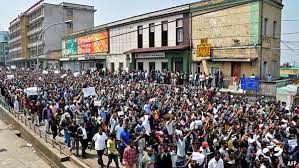A majority of Malians prefer punishing human rights violations during the conflict, rather than compensating victims, an Afrobarometer survey of 2400 cit
The findings, published today (16 May 2014 ) in the report “Malians Want a Unite d Country, Post Conflict Justice” also suggest that nine in ten people would like to see the country reunited.
At the same time, however, tolerance for differences has declined. Asked whether ‘the conflict in the north has changed your perception of other ethnic groups’, a majority of citizens said they view other ethnic groups less favorably.
Afrobarometer gratefully acknowledges financial support for this study from the United States Institute of Peace and the World Bank.
Key Findings
National Reconciliation
- More than nine out of ten adult Malian citizens (92%) want Mali to endure as one undivided country. This nationalist sentiment is held especially strongly in the northern regions that were most directly affected by politically motivated violence.
- Conflict and occupation in Mali’s northern regions has undermined inter-ethnic trust. People are twice as likely to say that they now have a “less favorable” view of “other” ethnic groups rather than a “more favorable” view (56 versus 28%).
- While larger ethnic groups such as the Bambara reveal a lack of social and political tolerance for members of minority groups such as the Tuareg, the reverse does not hold true; Tuareg respondents in fact reveal a high degree of openness towards Bambara.
Transitional Justice
- When asked to choose, Malians prefer retributive justice – meaning that offenders will be punished – rather than restorative justice – meaning that victims will be compensated (64 versus 35%).
- For example, people see the main role of the proposed Commission on Truth, Justice and Reconciliation (CVJR) as referring rights violators to the courts (90%). This role for the commission takes priority over promoting community dialogue (79%) or giving voice to victims (74%), though these approaches to just ice also attract popular support.
- More Malians prefer to prosecute human rights trials in national courts (47%) than to refer cases to international courts (25%). They do not see the customary justice system as equal to this task (2%).
- Most Malians (58%) have not heard of the CVJR. Thus only one third of all Malians (36%) express informed confidence that the Commission can successfully combine a quest for peace and the delivery of justice


